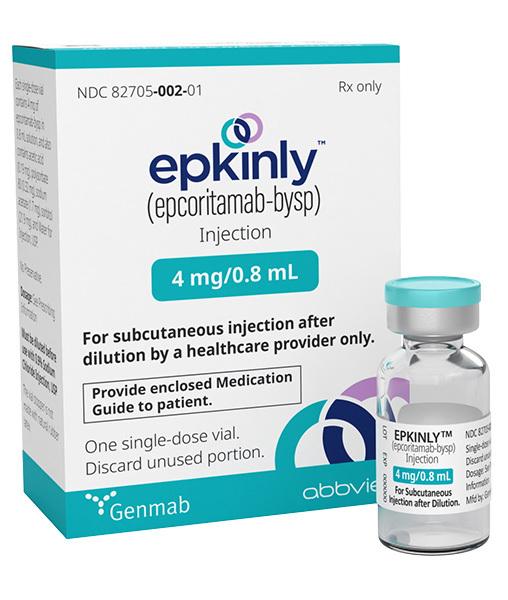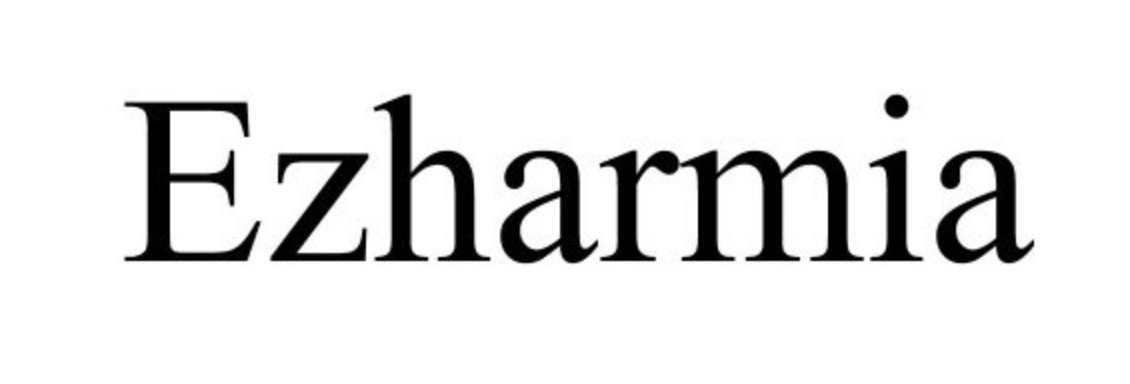Epkinly (epcoritamab-bysp) vs Ezharmia (valemetostat tosilate)
Epkinly (epcoritamab-bysp) vs Ezharmia (valemetostat tosilate)
Epkinly (epcoritamab-bysp) is an investigational bispecific antibody designed to target CD20 on B cells and CD3 on T cells, potentially enhancing the immune system's ability to fight certain B-cell malignancies. Ezharmia (valemetostat tosilate) is an experimental, small molecule inhibitor of EZH1 and EZH2, which are enzymes involved in gene expression that can contribute to the growth of some cancers. When deciding between the two, it is crucial to consider the specific type of cancer being treated, as each medication targets different pathways and mechanisms of action, and the decision should be made in consultation with an oncologist who can evaluate the patient's individual condition and treatment history.
Difference between Epkinly and Ezharmia
| Metric | Epkinly (epcoritamab-bysp) | Ezharmia (valemetostat tosilate) |
|---|---|---|
| Generic name | epcoritamab-bysp | valemetostat tosilate |
| Indications | Currently being investigated for treatment of B-cell non-Hodgkin lymphoma | Currently being investigated for treatment of adult patients with relapsed or refractory peripheral T-cell lymphoma |
| Mechanism of action | Bispecific antibody targeting CD20 and CD3 | EZH2 inhibitor |
| Brand names | Epkinly | Ezharmia |
| Administrative route | Subcutaneous injection | Oral |
| Side effects | Cytokine release syndrome, infections, neutropenia, anemia | Thrombocytopenia, neutropenia, anemia, gastrointestinal toxicity |
| Contraindications | Known hypersensitivity to epcoritamab or excipients | Known hypersensitivity to valemetostat or any component of the formulation |
| Drug class | Bispecific monoclonal antibody | Epigenetic modifier, specifically an EZH2 inhibitor |
| Manufacturer | Genmab and AbbVie | Daiichi Sankyo |
Efficacy
Efficacy of Epkinly (epcoritamab-bysp) for Lymphoma
Epkinly, known generically as epcoritamab-bysp, is an investigational bispecific antibody designed for the treatment of various types of lymphoma, including non-Hodgkin lymphoma (NHL). This therapeutic agent targets both CD3 on T-cells and CD20 on B-cells, aiming to engage the body's immune system to attack the cancerous cells. Clinical trials have been conducted to assess the efficacy of Epkinly in patients with relapsed or refractory B-cell lymphoma. Preliminary results have demonstrated promising response rates, with a significant proportion of patients achieving partial or complete remission. However, as of the knowledge cutoff date, Epkinly is still under investigation, and its efficacy is being closely monitored through ongoing clinical trials.
Efficacy of Ezharmia (valemetostat tosilate) for Lymphoma
Ezharmia, with the active ingredient valemetostat tosilate, is an experimental small molecule inhibitor that targets the EZH1 and EZH2 enzymes, which are involved in the epigenetic regulation of gene expression. It is being studied for its potential use in treating various hematologic malignancies, including lymphomas. In the context of T-cell lymphoma, Ezharmia has shown potential efficacy in early clinical trials. Patients with relapsed or refractory T-cell lymphoma have experienced measurable responses to the treatment, indicating that valemetostat tosilate may offer therapeutic benefits for individuals with this challenging condition. However, as with Epkinly, Ezharmia's efficacy is still being evaluated in clinical studies, and more data is needed to confirm its role in treating lymphoma.
Comparative Efficacy and Considerations
When comparing the efficacy of Epkinly and Ezharmia, it is important to consider that both drugs are at different stages of clinical evaluation and may target different subtypes of lymphoma. The bispecific nature of Epkinly allows it to bring T-cells into close proximity with B-cell lymphoma cells, potentially leading to an effective immune-mediated response. On the other hand, Ezharmia's mechanism of action involves epigenetic modulation, which may provide a novel approach to treating lymphoma by altering the expression of genes involved in cancer progression. Both treatments represent innovative approaches to lymphoma therapy, and their efficacy will be better understood as more data from clinical trials become available.
Conclusion
In conclusion, both Epkinly (epcoritamab-bysp) and Ezharmia (valemetostat tosilate) are promising agents in the treatment of lymphoma, with ongoing clinical trials to determine their efficacy and safety profiles. While Epkinly has shown encouraging results in B-cell lymphoma, Ezharmia is being evaluated for its potential in T-cell lymphoma. The medical community awaits further results to establish the precise role of these drugs in the management of lymphoma. Patients and healthcare providers should look for updates from clinical trials and regulatory agencies to understand the full potential and approved uses of these treatments as the data emerge.
Regulatory Agency Approvals
Epkinly
-
Food and Drug Administration (FDA), USA

Ezharmia
-
Pharmaceuticals and Medical Devices Agency (PMDA), Japan

Access Epkinly or Ezharmia today
If Epkinly or Ezharmia are not approved or available in your country (e.g. due to supply issues), you can access them via Everyone.org.
How it works

Make an enquiry
Choose the medicine you want to buy, answer a couple of questions, and upload your prescription to speed things up. We’ll get back to you within 24 hours.


Make an enquiry
Choose the medicine you want to buy, answer a couple of questions, and upload your prescription to speed things up. We’ll get back to you within 24 hours.


Breeze through the paperwork
We'll guide you through the required documents for importing unapproved medicine, ensuring you have all the necessary information.


Get a personalized quote
We’ll prepare a quote for you, including medicine costs and any shipping, administrative, or import fees that may apply.


Receive your medicine
Accept the quote and we’ll handle the rest - sourcing and safely delivering your medicine.

Some text on this page has been automatically generated. Speak to your physician before you start a new treatment or medication.
Let's talk
If you have any questions, call us or send us a message through WhatsApp or email:
Contact us




